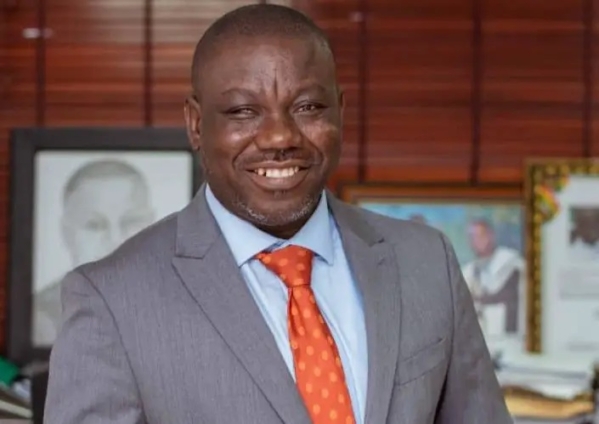The National Democratic Congress (NDC) has announced plans to introduce more private-sector initiatives in its next government to reduce the government’s involvement in business operations.
Speaking on Joy News’ PM Express, Isaac Adongo, the spokesperson on the economy for NDC flagbearer John Mahama, stated that a lean government would free up significant resources for other ventures.
“The idea of running a lean government will save the country a lot of money to channel into other ventures,” Adongo stated, underscoring the party’s commitment to efficient governance.
Mr Adongo defended Mr Mahama’s 680 campaign promises, asserting that they are both realistic and achievable.
“It's not the number of promises, it is the quantum of the envelope. If you look at the programs that we have planned and the policies that we have put together that are geared towards providing some level of realignment, you would understand that this can be funded,” he explained.
The NDC has been transparent about its strategy to fund its development projects, including leveraging Public-Private Partnerships (PPP) and development finance.
Mr Adongo pointed to successful projects from the previous Mahama administration, such as the development of the Tema Harbour (MPS) with $1.5 billion and the construction of Terminal 3, which were accomplished without burdening the government budget.
He elaborated on the party’s approach to infrastructure projects, such as the dualization of the Accra-Kumasi road, stressing the role of the Ghana Infrastructure Investment Fund (GIIF) and partnerships with multilateral institutions.
“If we say that we want to set up a vehicle, government becoming a stakeholder with $500 million, use the $500 million to leverage another $500 million that gives you $1 billion.
"With that $1 billion, if the road from Accra to Kumasi is $400 million, what you need is that government is bringing $200 million and the private sector investors are bringing $200 million,” Adongo illustrated.
Mr Adongo also addressed concerns about private sector involvement during a time when Ghana’s creditworthiness is in question.
“I trust the private sector more than government because the private sector has certain attitudes and principles and risk management beliefs that allow the investor to recoup his money.
"And we want to introduce programs that allow us to leverage this private sector arrangement without necessarily suffering the long hand of government in those activities,” he concluded.
Latest Stories
-
Consistency is key to keeping Black Stars place – Lawrence Agyekum
18 minutes -
Amir Khan praises President Mahama’s sons for bringing major boxing event to Ghana
22 minutes -
Amir Khan credits Prez Mahama’s children for supporting “historic” promotion in Ghana
28 minutes -
Supreme Court’s Celebrity Alcohol Ad Ban roils Ghana one year on
34 minutes -
Partey’s Arsenal contract renewal talks hit a snag
34 minutes -
Former basketball player Bryan-Amaning urges Ghana Federation to set sport on right path
39 minutes -
Ghana receives shipment of Human Papillomavirus (HPV) vaccines
45 minutes -
Kwabena Owusu becomes free agent after Ferencvaros exit
46 minutes -
Police arrest school proprietor for preventing BECE candidates from writing exam
1 hour -
Deepen fight against galamsey to restore public trust – Dr Ken Ashigbey urges gov’t
2 hours -
Ken Ashigbey criticises government over failure to revoke LI 2462
2 hours -
Galamsey crisis: GCAG demands urgent government action amid broken promises
2 hours -
Over 60 MPs storm Bawumia’s office to support his bid for 2028 election
2 hours -
We met $200m and GH₵300m of debts when we assumed control of DVLA – CEO reveals
3 hours -
Dafeamekpor denies restrictions on Minority’s role in Parliament’s Appointment Committee
3 hours

